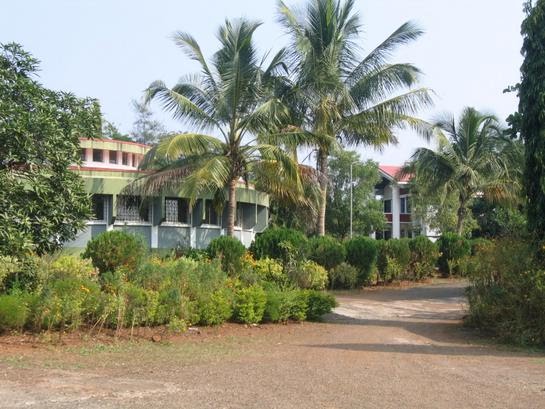
Mukta Jeevan Hospital, Shahpur
Ninety kilometres from Mumbai, in Shahpur taluka near the powerloom town of Bhiwandi, 13 nuns from The Helpers of Mary congregation work tirelessly at the Mukta Jeevan hospital and rehabilitation centre “to give people a second life and chance”.
About 300 persons, who are victims of the Hansen disease (most of us know them as ‘leprosy’ patients or ‘lepers’), apart from children of HIV positive parents, who are also innocent victims of the incurable disease, are cared for with dignity and respect. The complex also provides a roof to senior citizens discarded by their families and ignored by society.
As a centre for leprosy patients, the MJH believes in liberating life from leprosy through modern scientific medicine, from deformity through reconstructive surgery and from hopelessness through counselling.
While mass at the central chapel that forms the backdrop of the complex is a regular affair open to all, the evening bhajans, where a mixture of devotional songs in Marathi and Hindi are sung, is where all the participants join in every evening.
Over 90 per cent of the persons living at the Mukta Jeevan complex are non–Christians; a small and caring haven in Shahpur since 1987. Regular benefactors from different communities deposit clothes, grain and other gifts in kind both at Diwali and Christmas.
At the height of the current hate campaign against Christian institutions last year, the marriage by Vedic rites of Baliram Ganchak (32) and Laxmi Jeevan (28) made headline news in the national press. “Souls meet, faiths marry at Shahpur hospice” was how one news report colourfully described how 12 Christian nuns helped arrange the ritual at which the nervous couple took the plunge as a pundit chanted his shlokas, standing shoulder to shoulder with the guests as they sprinkled the holy akshata on the couple.
“We believe that everyone is a child of God, not a Hindu, Muslim or Christian. And we also need to remember that just because someone has leprosy the need to love and be loved is not diminished.’’
“The nuns are like parents to me,’’ Laxmi, the bride had then told the media. Little surprise then that it was the nuns who performed the kanyadaan. Established by the Helpers of Mary in 1987, the Vehloli centre (more home than hospice) has till date treated 85,748 out–patients and 2,116 in–patients.
The Helpers of Mary, which works with people from various sections of society, runs 46 centres countrywide, 19 of them in Mumbai. Three of these are homes for leprosy patients.
Says sister Leela, “We believe that everyone is a child of God, not a Hindu, Muslim or Christian. And we also need to remember that just because someone has leprosy the need to love and be loved is not diminished.’’
Like most of the others at the centre, Baliram and Laxmi have nowhere to else go. Says Sr Leela, “We try to send them back home as far as possible because re–integrating them with their families and communities is the best thing after they’re cured. But this is impossible for many of them as they are destitute and homeless.”
Which is why the centre, which has two 76–bed wards for men and women respectively, is a permanent home to several patients who have long since been cured. Apart from the wards, the centre houses a hospital, where specialists from outside administer treatment. Every time a couple gets married, the nuns present the woman with a mangalsutra, a hamper, a few utensils and a home. The latter, which are furnished, unattached rooms, stand amid a riot of colours and greenery on sprawling grounds.
The cured leprosy patients are given job opportunities in an attached complex that houses a workshop, a weaving centre, welding centre, farm and garden, dairy farm and poultry. Young men who are cured are sent to the Nashik Leprosy Mission centre for training in driving, motor repair, printing and tailoring.